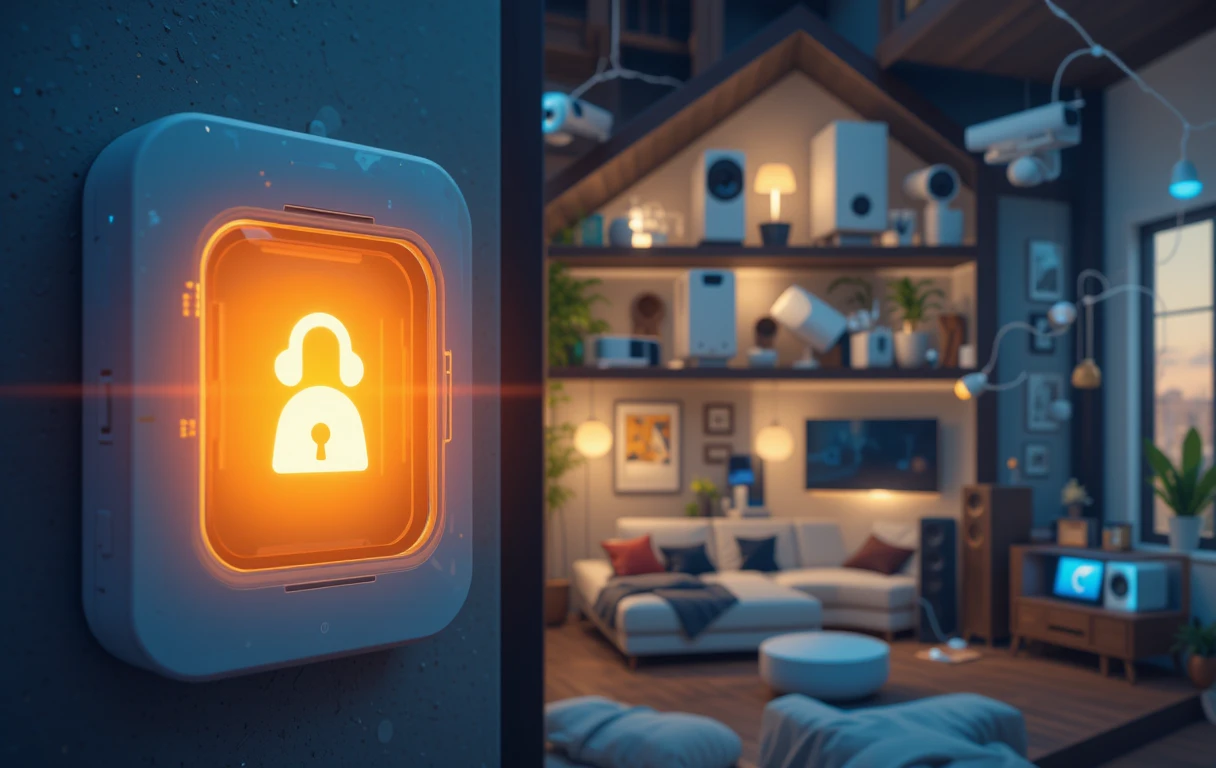Smart homes are the epitome of convenience. With just a voice command or a tap on your smartphone, you can dim the lights, adjust the thermostat, or even start your morning coffee. But beneath the comfort and automation lies a looming question: Is your smart home spying on you?
The rise of Internet of Things (IoT) devices has not only revolutionized how we live but has also opened up significant security vulnerabilities. These devices collect vast amounts of personal data, often without users even realizing it. In this article, we’ll explore the hidden security risks of IoT devices, how they might be spying on you, and what you can do to protect your privacy.
The Rise of Smart Homes and IoT Devices
Smart homes are no longer a luxury—they’ve become a standard feature in modern living. IoT devices like smart speakers, security cameras, and smart plugs are designed to make life easier and more efficient. But have you ever stopped to think about what makes these devices “smart”?
These gadgets rely on constant data collection. From your daily routines to your voice commands, every action you take in your smart home generates data that is stored in the cloud. While some of this data is used to enhance functionality, there’s a darker side—this data can also be exploited.
How IoT Devices Collect Your Data
IoT devices are designed to monitor, analyze, and adapt to your behavior. For example:
- Smart speakers like Amazon Echo or Google Nest are always listening for their “wake word.” This means they are passively listening to ambient conversations.
- Smart security cameras record footage and store it in cloud servers, potentially making it vulnerable to hacks.
- Smart thermostats collect data on when you’re home and when you’re away, creating patterns of your daily movements.
Even if these devices are designed with good intentions, the way they collect, store, and share data opens up privacy concerns that many users are unaware of.
Is Your Smart Home Spying on You? Signs to Look Out For
The idea of your own home spying on you may sound like science fiction, but it’s not far from reality. Here are some warning signs:
- Unusual Device Activity: If your devices are activating without commands, it could indicate that someone else has accessed them.
- Increased Data Usage: A spike in your internet data usage might suggest that your IoT devices are transmitting data unexpectedly.
- Unauthorized Logins: If you receive alerts about login attempts you didn’t authorize, it’s a sign that your account may have been compromised.
- Ads That Feel Too Personal: Have you ever seen ads that eerily match conversations you had near your smart speaker? This could suggest your device is collecting more data than you realize.
The Hidden Security Risks of IoT Devices
Weak Default Passwords
Many IoT devices come with default passwords that users forget to change. These default settings make it easy for hackers to access your devices.
Lack of Encryption
Some devices transmit data without encryption, meaning that sensitive information can be intercepted during transmission.
Unpatched Software
Manufacturers don’t always update the firmware of IoT devices, leaving vulnerabilities open for exploitation.
Data Sharing with Third Parties
Many IoT devices share user data with third-party companies for marketing or analytics purposes. This means your data could end up in the hands of advertisers—or worse.
Real-Life Examples of IoT Security Breaches
To understand the risks, let’s look at real-life examples:
- In 2019, hackers accessed Nest security cameras, terrifying families by speaking to them through the devices.
- A Ring doorbell was hacked, allowing intruders to spy on homeowners through live feeds.
- A smart fridge was exploited to send phishing emails, demonstrating how even harmless appliances can become cybersecurity threats.
How to Protect Your Smart Home and Your Privacy
Thankfully, there are steps you can take to safeguard your smart home from spying and hacking.
1. Change Default Passwords Immediately
The first step is to replace default passwords with strong, unique ones. Use a password manager to keep track of them.
2. Regularly Update Device Firmware
Outdated firmware often contains security vulnerabilities. Set reminders to check for updates regularly.
3. Use a Separate Network for IoT Devices
By creating a separate Wi-Fi network for your smart devices, you can limit access to your main network.
4. Disable Features You Don’t Use
If you’re not using certain features, like voice recording or location tracking, disable them in the device’s settings.
5. Review Privacy Policies
Before purchasing an IoT device, read its privacy policy to understand what data is collected and how it’s used.
Can You Trust Your Smart Home Manufacturer?
When it comes to IoT security, not all manufacturers are created equal. Larger companies like Google and Amazon have robust security measures, but smaller brands may cut corners. Look for brands with a reputation for prioritizing security and regularly patching vulnerabilities.
The Role of Governments and Regulations
Governments around the world are starting to recognize the risks associated with IoT devices. Regulations like the GDPR in Europe aim to protect user data. However, there’s still a long way to go in ensuring global IoT security standards.
The Future of IoT Security
The future looks promising as technology companies invest in stronger security measures. Innovations like AI-driven threat detection and blockchain-based data encryption are on the horizon. However, as devices become more advanced, so do the tactics of hackers. The responsibility to stay informed and proactive falls on both consumers and manufacturers.
Conclusion
The convenience of smart homes comes with a price—your privacy. IoT devices are incredible tools that can make life easier, but they can also expose you to hidden security risks. By understanding how these devices work and taking steps to protect your data, you can enjoy the benefits of a smart home without compromising your privacy.
So, is your smart home spying on you? The answer depends on how vigilant you are about securing it. Don’t wait until it’s too late—take action today and ensure your home is truly your sanctuary.




